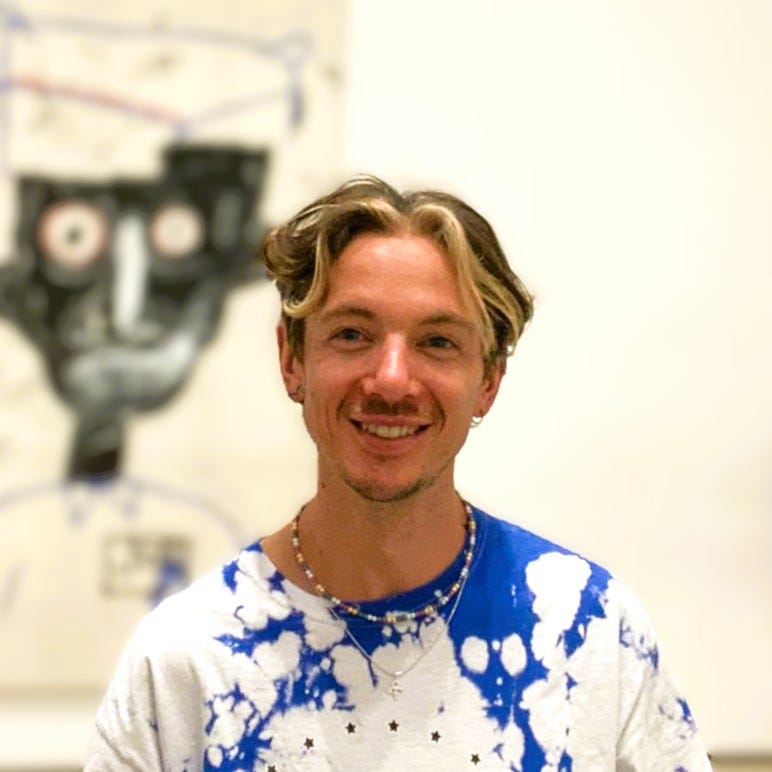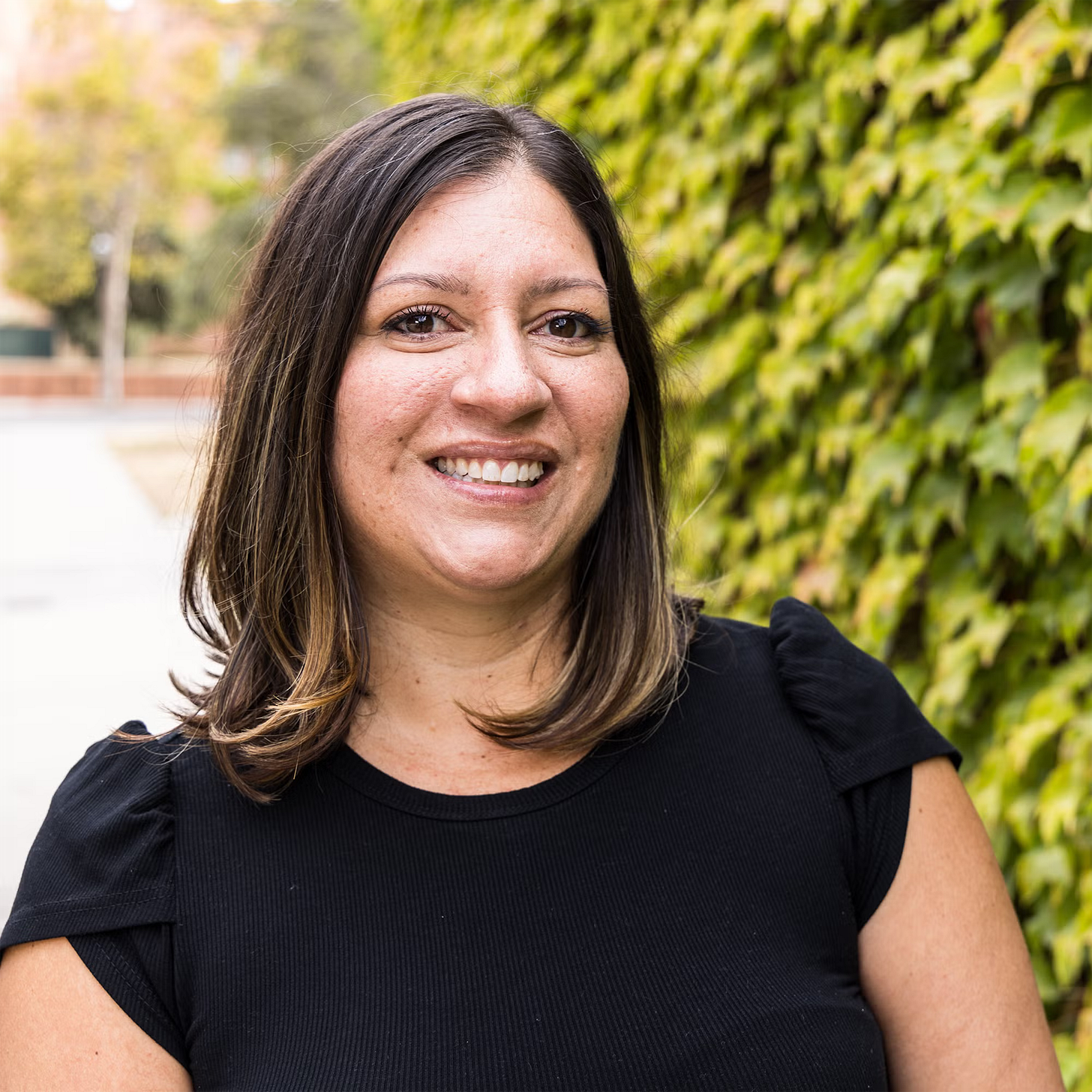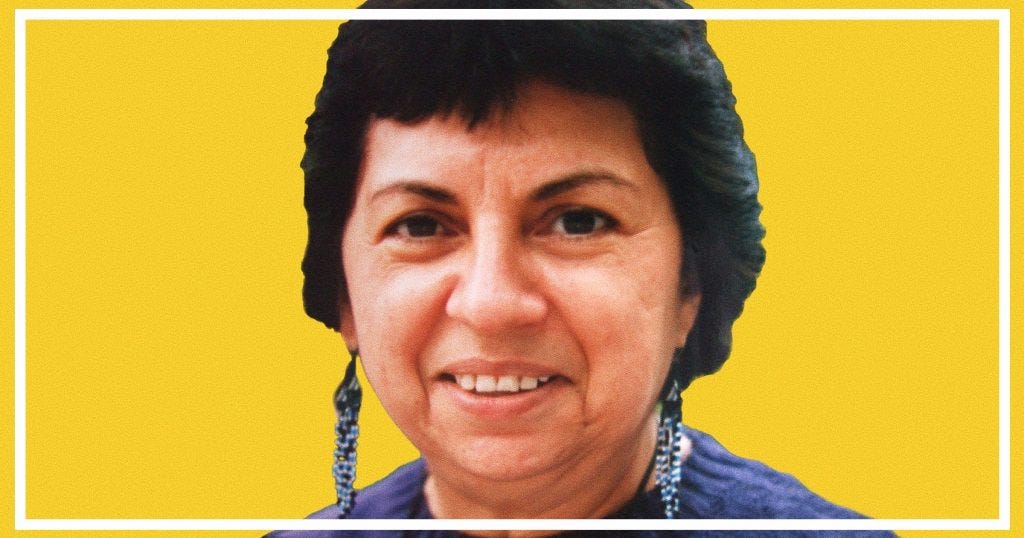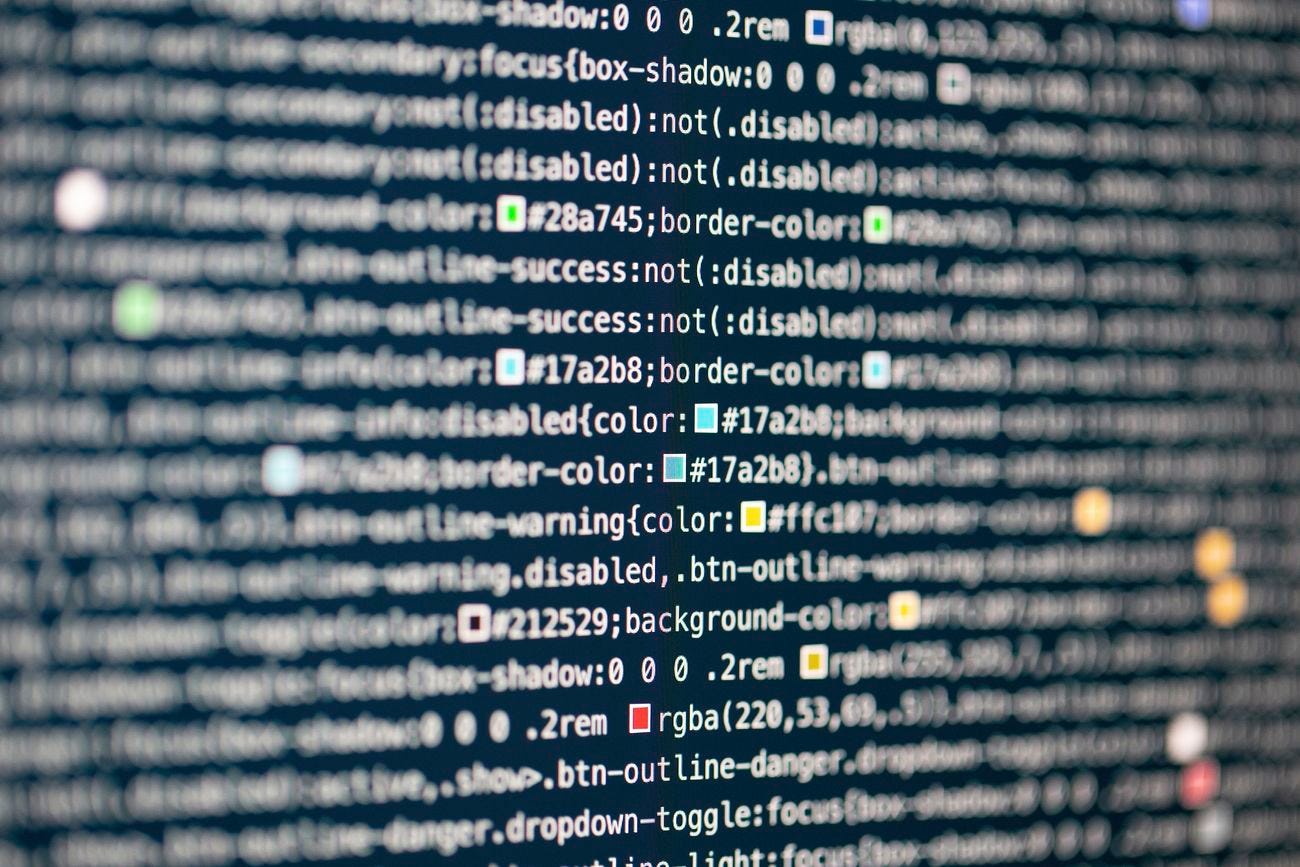Data Borders
In this week’s newsletter
Fast 5 with Billy Tusker Haworth
Scholarly Sources with Melissa Villa Nicholas
Monthly Roundup - some of our most popular episodes in the past month!
Fast Five with Billy Tusker Haworth
Dr. Billy Tusker Haworth is a geographer in the School of Geosciences, University of Sydney, teaching and conducting research in geographic information systems (GIS), natural hazards and disasters, climate change, and environmental management. They are particularly interested in how people and environments cope with disruption from natural and human threats, and how geography and mapping can be more inclusive to enable more diverse participation in scientific research and policy decision-making. Billy lives on unceded Gadigal land with their partner and their two very sweet rescue kitties, Kika and Ricky.
On Earth We're Briefly Gorgeous by Ocean Vuong — This was one of the first books I read as part of the first ever book club I was in, while working at the University of Manchester a few years ago, and it very quickly became one of my favorite novels. It’s meaningful to me because of that wonderful first experience of being in a book club with good friends. But more than that, it is an immensely beautiful book dealing with powerful intersectional themes of identity, culture, abuse/trauma, migration, language and human connection. I’ve read the novel multiple times and still reread sentences each time because the writing is so beautiful and thought-provoking. The overall premise of the book alone, of a queer Vietnamese-American boy writing a letter to his mother about his life knowing that she won’t actually be able to read it due to inability to speak the same language, is very touching and speaks to the necessity of language and stories for human existence.
One Hundred Years of Solitude by Gabriel García Márquez — My favorite “must-read classic”, One Hundred Years of Solitude, blends supernatural elements, politics, family drama, intriguing complex characters and captivating storytelling. I love the multigenerational focus of the novel, which makes you (re)consider the expanse and meaning of time in defining (a) human life. When I first read this book about 15 years ago, I hadn’t read anything like it before - so serious and funny simultaneously. Maybe I should read more magic realism!
All In: An Autobiography by Billie Jean King — I love tennis, for the exercise, using my brain and body together, socializing/friendship, competition, and the kind of escape from whatever else is happening in my/the world that I get while playing. That this pretty simple, joyous and meaningful activity was so discriminatory towards women (and still is exclusionary along many lines, such as wealth/access) is still upsetting (while unfortunately not shocking). In this book, tennis legend Billie Jean King tells her story, rising to be the one of the greatest tennis players of all time while constantly and unwaveringly fighting the individuals and structures that sought to exclude and diminish women in tennis, breaking barriers and creating space for women and girls up to this day. She is an inspiration to me, for her iconic tennis, yes, but even more so for her dedication to promoting inclusion and equality for women, LGBTQIA+ people, people of color and other minorities in tennis, sport, and society more widely.
Beyond the Gender Binary by Alok Vaid-Menon — This very tiny book of only 64 (little) pages is BIG on ideas and identity. Gender-nonconforming artist, Alok, weaves their own experience with social/political critique to introduce, explain, and deconstruct the problematic concept of binary gender in an accessible way. It’s also a very creative, joyous and hopeful book, full of kindness and possibilities for a better world. The book was especially important to me at a time when I was learning to more deeply understand my own queerness and gender identity. It also has links to my work as a scholar working on disaster vulnerabilities and resilience, with inequalities, marginality, and social norms being some of the root causes of uneven impacts of natural hazards and other crises on LGBTQIA+ people.
Citizen Science: How Ordinary People are Changing the Face of Discovery by Caren Cooper — A good friend of mine, Dr. Caren Cooper, wrote this fantastic, accessible book about the extremely varied and meaningful ways that everyday people can, and do, contribute to advancing science in diverse fields, such as meteorology, astronomy, marine biology, geography, public health and more. Citizen science is important to me (and my work) as it presents possibilities for wider inclusion in science and knowledge creation, valuing different skills and experiences beyond the formal and privileged system of universities and research institutions. Not discounting the valuable expertise and experience of professional scientists, science should be for everyone. As the fascinating stories in this book illustrate, citizen science makes that more possible.
Put Billy’s picks on your To Be Read list and listen to their NBN interview about a new report on the State of the Marine Environment in Palawan, an archipelagic province of the Philippines!
Scholarly Sources: Melissa Villa Nicholas
Melissa Villa Nicholas is an assistant professor at UCLA’s Department of Information Studies. Her second book, Data Borders: How Silicon Valley is Building an Industry Around Immigrants, (UC Press, 2023) received the McGannon Center Book Award from Fordham University. She earned her Ph.D. in Information Science from the University of Illinois Urbana-Champaign
Q: What are you reading right now?
A: Syllabus: Notes from an Accidental Professor by Lynda Barry
Q: What is your favorite book or essay to assign to give to people and why?
A: This is very difficult, there are so many. For my course on Information Technology Surveillance and the U.S.-Mexico Borderlands, my students really enjoyed Ana Muñiz’s Borderland Circuitry: Immigration Surveillance in the United States and Beyond. Muñiz has a way with breaking down difficult concepts and keeping the reader interested in understanding how the law and information technology lend themselves to policing immigrants. My students found her book the most compelling in understanding this current surveillance system.
Q: Is there a book you read as a student that had a particularly profound impact on your trajectory as a scholar?
A: As a doctoral student I read Venus Green’s Race on the Line: Gender, Labor, and Technology in the Bell System, 1880–1980, and it helped guide my research trajectory and understanding of how information technologies are social constructs, often intentionally designed with race and gender discrimination in mind. Since much of my family was employed by the Bell system, it also helped me understand the big picture of how my family (Mexican/Mexican-American) came to be employed in telecommunications. This still informs my outlook on Silicon Valley, racial inclusion and exclusion, and policy today.
Q: Which deceased writer would you most like to meet and why?
A: Gloria Anzaldúa, author of Borderlands/La Frontera: The New Mestiza. I’m still reflecting on her work from years ago about race, gender, sexuality, indigeneity, and borderlands identity, and I often revisit her work, her biography, and her research choices as I think about my own next steps as a scholar.
Q: What's the best book you've read in the past year?
A: Doppleganger: A Trip into the Mirror World by Naomi Klein helped put some things in perspective for me in understanding better this current state of alt-right fascism that we’re in, and why it feels so intimate and hits so close to home.
Q: Have you seen any films, documentaries, or museum exhibitions that left an impression on you recently?
A: I have a young child, so everything I watch tends to be the most recent children’s movie, all of which have a way of making the grown-ups in the movie theatre tear up.
I just watched the documentary Human Flow by Ai Wei Wei, released in 2017, and used it in a recent course I taught. This film shows multiple points around the world where migration is happening heavily, and gives intense perspectives of how people are experiencing these migrations. This film left a profound impression on me because of how it demonstrates how embodied migration is and how physically taxing so many people are experiencing around the world.
Q: What do you plan on reading next?
A: Against Technoableism: Rethinking Who Needs Improvement by Ashley Shew is next up on the academic reading list, and listening to Grady Hendrix’s Witchcraft for Wayward Girls for funsies.
Q: What sparked your interest in studying the intersection of immigrants and Silicon Valley?
A: I read an article by Sarah Lamdan (current Director of the Office for Intellectual Freedom and author of Data Cartels: The Companies That Control and Monopolize Our Information) in 2019 about how data management companies (such as the RELX group- formerly and formally known as Elsevier) provides data to ICE with through contracts, and began to see how many silicon valley companies were holding contracts with DHS. I began to worry that this data gathering would impact my hometown in Southern California, and could go as far as detaining and deporting people from my own community, so I began to research the magnitude of this surveillance network.
Q: What is one thing that surprised you while doing your research for this book?
A: That I couldn’t wrangle the ICE network in description. It was too large and too many companies provide data to ICE for me to be able to actually demonstrate it in a visualization or book, the target was constantly moving.
Q: Who should read your book Data Borders: How Silicon Valley Is Building an Industry around Immigrants and why?
A: I wrote the book so that my family and friends want to read it, without being dissuaded by academic jargon. I hope that readers outside of the university read it out of concern for how their data moves, and lends itself to detention and deportation in the United States.
Q: Anything else you’d like to share?
A: Right now we are seeing detention and deportation run rampant in this country, but it is scaffolded on a system that has long been built around surveillance, discrimination, and fear around immigrants in the U.S. I believe that we can do better when it comes to humane immigration policy, humanizing migration, and disinvesting from unregulated big tech.
Listen to Melissa’s great interview, and check out her book Data Borders.
Monthly Roundup
Curious about what other NBN listeners are tuning in to? Check out a few of our most downloaded episodes this month!
Emmanuel Akyeampong discusses his great book Independent Africa: The First Generation of Nation Builders
Kevin B. Anderson’s interview about The Late Marx’s Revolutionary Roads: Colonialism, Gender, and Indigenous Communism
Sladja Blažan shares her book, Ghosts and Their Hosts: The Colonization of the Invisible World in Early America
Lieba Faier gives a great interview about The Banality of Good: The UN’s Global Fight Against Human Trafficking
Tune in to Quinn Slobidian’ and Philip J. Stern in conversation about political economy. Check out Quinn’s book Crack-Up Capitalism: Market Radicals and the Dream of a World Without Democracy and Philip’s book Empire, Incorporated: The Corporations That Built British Colonialism .









